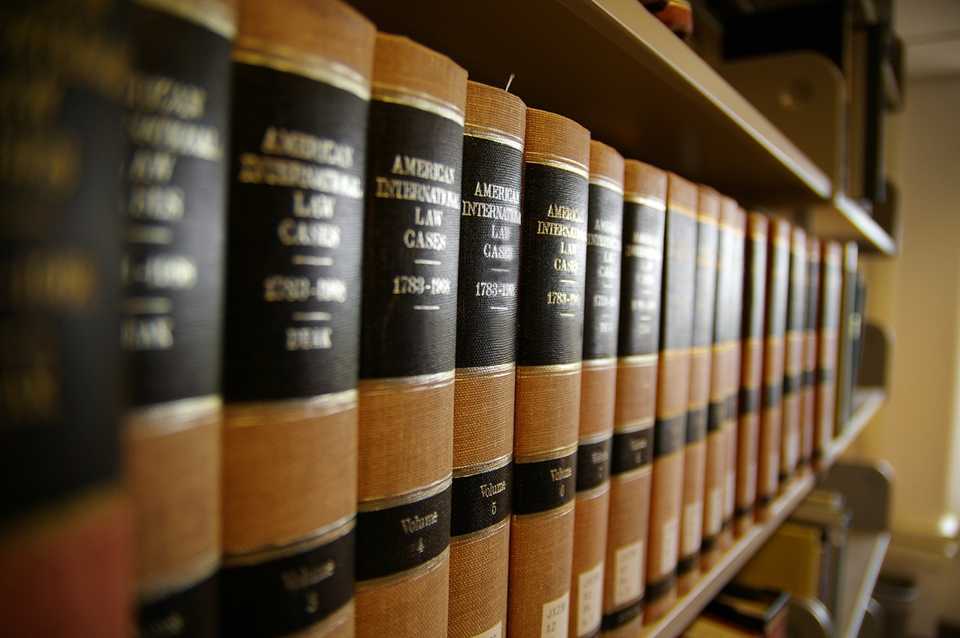When it comes down to it: What does a Notary do? A Notary Public can administer oaths, affirmations, and solemn declarations. This means they can legally verify that an individual has sworn or affirmed the truthfulness of a statement or document.

When are the Services of a Notary Required?
They are often required for various legal documents, such as affidavits, statutory declarations, and powers of attorney. They help prove the legitimacy of a document in the eyes of the courts.
Affidavits
A Notary Public can also assist in the preparation and certification of affidavits.
What is an affidavit?
An affidavit is a written statement of facts that is sworn or affirmed before a Notary Public.
It is commonly used as evidence in legal proceedings or as a sworn statement for various purposes, such as immigration applications, name changes, or land transfers.
Document certification
Notaries Public in Canada can certify copies of original documents. This means they can compare a copy of a document to the original and confirm that it is a true and accurate reproduction. Certified copies are often required for official purposes when the original documents cannot be provided or need to be retained by the owner.

Here are the Subcategories of the Profession
In Canada, there are two main types of notaries : Notary Public and Commissioner for Oaths. Here's a brief overview of each as well as a look at the general duties they undertake through their role:
| Notary Public | Their main role is to ensure the authenticity and integrity of documents and signatures by performing various notarial acts, including administering oaths, affirmations, and solemn declaration. |
|---|---|
| Commissioner for Oaths | They are also authorized to administer oaths, affirmations, and solemn declarations, but their powers and jurisdiction are more limited compared to Notaries Public. |
Both are appointed by provincial or territorial authorities. One interesting distinction between the two is that unlike Notaries Public, Commissioners for Oaths generally cannot certify copies of documents.
It's important to note that the terminology and roles of notaries may differ slightly depending on the province or territory.
For example, in Quebec, a Notary Public is referred to as a "Notaire" and has a broader scope of practice than in other provinces.
Therefore, it is advisable to consult the specific legislation and regulations of the jurisdiction in question for accurate and up-to-date information on the types and functions of notaries in Canada.
Notary or Lawyer: The Key Differences Between the Professions
While both notaries and lawyers are legal professionals, there are several key differences between the two in Canada. Here are the main distinctions:
Education and Training
To become a lawyer in Canada, individuals must complete a law degree from an accredited law school and then pass the bar admission exams. This involves several years of intensive legal education and training.

On the other hand, becoming a notary public usually does not require a law degree. The requirements to become a notary vary by province or territory. It generally involves a shorter educational program or specific training focused on notarial functions.
Scope of Practice:
Lawyers in Canada have a broad scope of practice and are authorized to provide legal advice, represent clients in court, draft legal documents, and negotiate on their behalf. They have a comprehensive understanding of the law and can provide specialized advice in various areas such as family law etc.
Notaries, on the other hand, have a more limited scope of practice. Notaries cannot provide legal advice or represent clients in court. This excludes Quebec notaries who can. They primarily focus on notarial acts, including administering oaths, affirmations, and certifications of documents.
Professional Organizations:
Lawyers in Canada are typically members of the provincial or territorial law society, which regulates the legal profession and ensures professional standards are maintained.
Notaries, on the other hand, may be members of a notary society or association, depending on the jurisdiction, but their professional organizations are not as extensive or regulatory as those for lawyers.
Once again, an exception here must be made as in Quebec notaries are members of a professional association that is comparable to that of lawyers regarding its regulations and expectations.
The key differences between notaries and lawyers in Canada lie in their:
- Education
- Scope of practice
- Ability to provide legal advice and representation.
Lawyers can provide comprehensive legal services, while notaries focus primarily on notarial acts and generally cannot provide legal advice or represent clients in court.
What are the Fees Associated with Consulting a Notary?
Typically, notaries offer a package rate for a combination of services as opposed to hourly fees.
In Quebec, where notaries are an independent professional association, the average fee will range between 300$ for a marriage contract to 800$ for real estate related transactions.

In the rest of Canada, lawyers usually undertake the tasks associated with the notary profession and as such the fees will reflect their hourly rate. Typically, however, the average cost for administrating oaths or affirmations ranges between 20$ and 40$.
When a Notary can Make a Difference: Real Life Examples
Consulting a notary in Canada can be essential in various real-life situations that require legal expertise and notarial services. Here are some examples of situations where it is advisable to seek the advice and assistance of a notary:
Real Estate Transactions & Estate planning
Buying or selling a property is a significant financial transaction that involves complex legal processes. Consulting a notary for real estate transactions can provide you with valuable guidance and ensure that all legal requirements are met.
A notary can:
- review and draft purchase agreements
- conduct title searches
- verify property ownership
- prepare mortgage documents
- facilitate the transfer of property ownership.
When planning your estate, a notary can play a crucial role in ensuring your wishes are properly documented and legally binding. They can help you draft and notarize important estate planning documents such as wills, powers of attorney, and healthcare directives.
The benefits! A notary can provide guidance on estate distribution, minimize tax implications, and assist in creating trusts for asset protection and management.
Notarization and Certification of Documents
Notaries can authenticate and certify various legal documents, making them legally valid and admissible. This includes notarizing affidavits, statutory declarations, and consent forms.

If you need to certify copies of original documents, such as birth certificates, passports, or academic transcripts, a notary can compare the copies to the originals and certify their accuracy.
This service can be a life saver especially if you are arriving in Quebec from another country. You will be able to give your important documents such as your birth certificate originating from your country of origin to a notary who will provide safekeeping. In exchange, they will give you a copy of your documents that will be equivalent to the originals in the eyes of the law.
Immigration and Citizenship Applications
Notaries can provide valuable assistance in immigration and citizenship applications. They can help you complete and notarize application forms, certify copies of supporting documents, and provide guidance on the legal requirements and procedures involved in the application process.
Powers of Attorney and Notarial Services for the Elderly
Notaries can play a crucial role in helping the elderly or individuals with diminished capacity establish powers of attorney and healthcare directives.
These legal documents ensure that someone trusted is appointed to make financial and healthcare decisions on their behalf in the event they become incapacitated.
Notaries can explain the legal implications, draft the necessary documents, and notarize them to make them legally valid.
Marriage and Family Law Matters
Notaries in Quebec have broader legal authority compared to other provinces and can provide legal advice and services related to marriage and family law matters.
They can assist with drafting marriage contracts, separation agreements, and cohabitation agreements. Notaries can also notarize consent forms for travel with a minor or for international child abduction prevention.
When in Doubt: You Should Consult a Notary!
Consulting a notary in Canada can be beneficial in various real-life situations that require notarial services and legal expertise.

Whether it's for real estate transactions, estate planning, document certification, business transactions, immigration applications, or family law matters, a notary can provide the necessary guidance and assistance to ensure your legal rights and interests are protected.
Seize this opportunity and don’t leave your future up to chance. Act now with JuriGo and secure your investment legacy!
